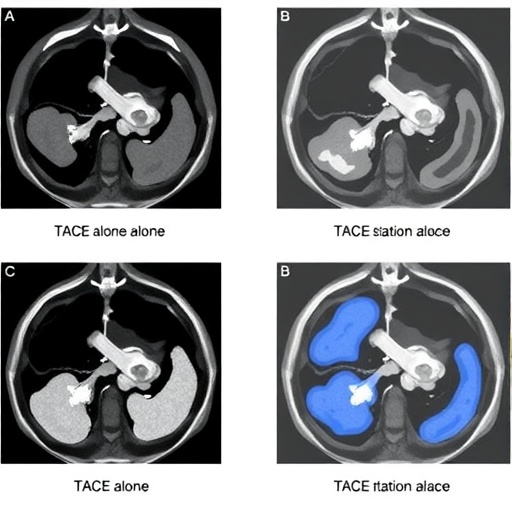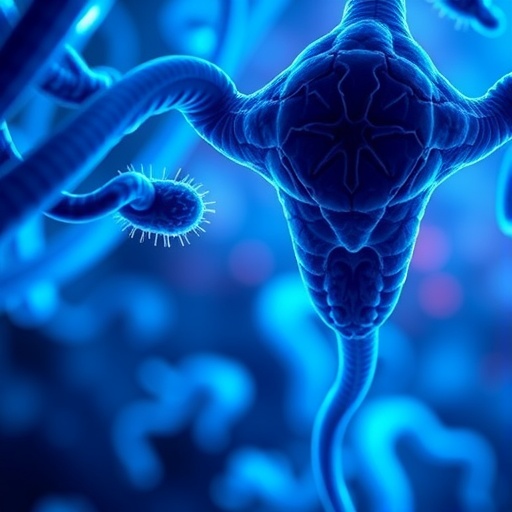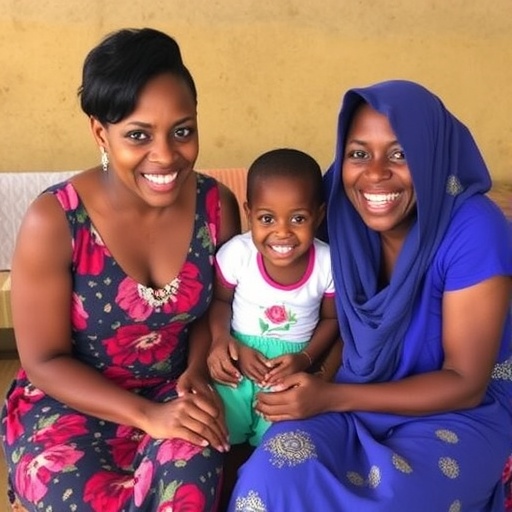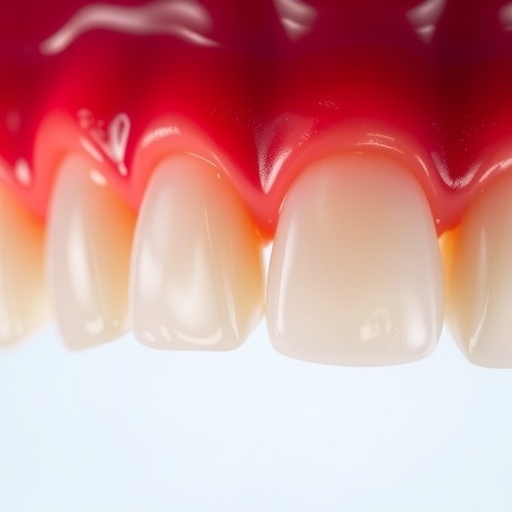PROTECT YOUR DNA WITH QUANTUM TECHNOLOGY
Orgo-Life the new way to the future Advertising by AdpathwayAn innovative gene therapy developed collaboratively by UCLA, University College London, and Great Ormond Street Hospital has demonstrated remarkable success in restoring durable immune function in children afflicted with adenosine deaminase severe combined immunodeficiency (ADA-SCID), a life-threatening genetic immune disorder. This experimental treatment stands as a groundbreaking advancement in medical science, redefining therapeutic strategies for this rare condition that has historically been fatal within the first two years of life without intervention.
ADA-SCID arises from mutations in the ADA gene, which encodes the enzyme adenosine deaminase—critical for the proper functioning of the immune system. The deficiency of this enzyme causes a profound impairment in immune defenses, rendering affected infants highly susceptible to severe infections from otherwise commonplace environmental exposure. Until now, treatment options have included bone marrow transplants from matched donors and lifelong enzyme replacement therapy. However, both methods carry significant risks, logistical challenges, and financial burdens, necessitating the development of safer, more sustainable alternatives.
The gene therapy in question employs a sophisticated technique that begins with harvesting hematopoietic stem cells from the patient’s own blood. These stem cells are pivotal as precursors to the entire spectrum of blood and immune cells responsible for pathogen defense. Using a genetically engineered lentiviral vector, researchers introduce a corrected, functional version of the ADA gene directly into these stem cells ex vivo. Upon re-infusion into the patient, the modified cells engraft and initiate the production of functional immune cells, thereby restoring the body’s ability to combat infections naturally and effectively.
Notably, the process of immune reconstitution following treatment is not instantaneous. It unfolds progressively over six to twelve months, as the transplanted stem cells proliferate and mature into diverse immune cell populations that re-establish robust immune competency. This prolonged timeline underscores both the complexity of hematopoietic cell biology and the careful clinical management required during recovery to mitigate risks.
In a recent publication in the New England Journal of Medicine, Dr. Donald Kohn of UCLA, a pioneering figure in gene therapy, along with colleagues including Dr. Katelyn Masiuk and Dr. Claire Booth, unveiled long-term follow-up data from a cohort of 62 children treated between 2012 and 2019. The results are compelling—59 of the 62 patients experienced successful restoration and maintenance of immune function, with no serious adverse events attributable to the gene therapy itself. The study includes an unprecedented 474 cumulative patient-years of observation, highlighting the sustained efficacy and safety of the approach over extended periods.
This dataset represents the most extensive and prolonged follow-up available for gene therapies targeting ADA-SCID, including five children living healthy lives more than a decade after their treatment. The stability of immune restoration beyond the initial recovery phase suggests that the gene-modified hematopoietic stem cells engraft effectively and persist, maintaining immune surveillance in the patients indefinitely. This durable response marks a significant milestone in the evolution of precision medicine for genetic immunodeficiencies.
Clinical observations reveal that all adverse effects recorded were either mild or moderate, frequently linked to preparatory procedures rather than the genetic intervention itself. Only three patients did not respond favorably to the gene therapy; these individuals subsequently resumed conventional treatment modalities such as bone marrow transplantation or enzyme replacement, demonstrating the continued viability of existing therapies as backup options.
Another crucial advancement of the study is the validation of cryopreservation techniques for the gene-corrected stem cells. More than half of the pediatric patients received frozen cells, which performed equivalently to those infused fresh. This cryopreservation breakthrough considerably expands access to treatment by allowing cellular products to be manufactured at centralized, specialized facilities and shipped globally, markedly reducing the need for patient travel to treatment centers.
The frozen stem cell protocol additionally facilitates rigorous quality control and precise dosing of conditioning chemotherapies, thereby optimizing patient safety and therapeutic consistency. These improvements in manufacturing and logistics herald a new era where gene therapies can be made broadly available to patients irrespective of geographic location or healthcare infrastructure disparities.
Looking forward, the research team at UCLA is actively engaged in preparing for regulatory approval, supported by funding from prominent institutions including the California Institute for Regenerative Medicine and various U.S. and U.K. health agencies. The therapy has been licensed to Rarity PBC, an organization dedicated to developing commercial-grade production pipelines in compliance with pharmaceutical standards, a critical step toward FDA market authorization anticipated within the next two to three years.
The transformative potential of this therapy is epitomized by the story of Eliana Nachem, a young patient who received the gene therapy at ten months old in 2014. Diagnosed as an infant, Eliana endured comprehensive isolation to avoid infections. A decade after treatment, she now leads an unrestricted, vibrant life, attending school and engaging in activities like sports—testament to the profound and lasting impact of this molecular medicine innovation.
Dr. Kohn and his colleagues emphasize that while the initial advent of gene therapy for ADA-SCID was groundbreaking, the current long-term data validate the treatment’s safety, durability, and feasibility, representing a paradigm shift in the management of inherited immune disorders. This success paves the way for broader applications of gene correction technologies in other hematologic and genetic diseases, ushering in a new generation of curative therapies built on the principles of genetic precision and cellular engineering.
As the community eagerly awaits FDA approval and subsequent clinical dissemination, this gene therapy stands as a beacon of hope and a model of interdisciplinary collaboration, combining virology, molecular genetics, immunology, and clinical medicine to conquer a once-fatal condition with the promise of normal, healthy lives for affected children worldwide.
Subject of Research: Adenosine deaminase severe combined immunodeficiency (ADA-SCID) and gene therapy interventions.
Article Title: Long-term Efficacy and Safety of Autologous Hematopoietic Stem Cell Gene Therapy for ADA-SCID.
News Publication Date: June 2024.
Web References:
New England Journal of Medicine: https://www.nejm.org/media/doi/full/10.1056/NEJMoa2502754
UCLA Dr. Donald Kohn profile: https://stemcell.ucla.edu/member-directory/donald-b-kohn-md
Eli and Edythe Broad Center of Regenerative Medicine and Stem Cell Research at UCLA: https://stemcell.ucla.edu/
UCLA Technology Development Group: https://tdg.ucla.edu/
California Institute for Regenerative Medicine grant announcement: https://stemcell.ucla.edu/news/donald-kohn-awarded-147m-cirm-grant-advance-ada-scid-gene-therapy-toward-fda-approval
Keywords: Gene therapy, ADA-SCID, hematopoietic stem cells, immune reconstitution, lentiviral vector, cryopreservation, clinical outcomes, pediatric immunodeficiency, regenerative medicine, FDA approval, molecular genetics, viral vector therapy.
Tags: adenosine deaminase deficiency treatmentadvancements in gene therapy technologygene therapy for ADA-SCIDhematopoietic stem cell therapyinnovative treatments for genetic disorderslife-threatening genetic immune disorderslong-term immune protection in childrenovercoming challenges in bone marrow transplantsrestoring immune function in infantsrevolutionary medical science breakthroughssustainable alternatives to enzyme replacement therapyUCLA and University College London collaboration


 2 hours ago
5
2 hours ago
5





















 English (US) ·
English (US) ·  French (CA) ·
French (CA) ·